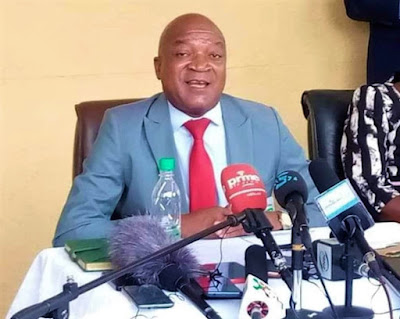Ministry of Education Permanent Secretary calls for digitalization of libraries in Zambia
By Bedson Nyoni
 |
| Library Week celebrartion in Zambia |
Ministry of Education Permanent Secretary Zambia Commemorates 2022 National
Library Week has called for the digitalization of libraries across the country.
In a speech read on his behalf by National Director for Primary Schools, Mr. Keziah Mwale at the official launch of the 2022 National Library Week held at Civic Centre in Kabwe, from 13 - 17 June 2022, Mr. Kamoko said there was a need for libraries to be connected to advanced technologies to make them accessible to everyone.
“Libraries are places to get connected to technology by using broadband, computers, and other resources. This year’s theme is an explicit call to action, an invitation for communities to join, visit or advocate for local libraries,” he said.
Mr. Kamoko noted that the 2022 National Library Week theme demonstrates how modern libraries were at the heart of institutions providing critical resources and expertise that add value to our communities.
This year’s National Library Week commemorations across the country are being held on the theme: “Connect with your library”.
Mr. Kamoko also called on stakeholders to continue supporting the ministry in the provision of libraries and library services at all levels.
He revealed that the Government in partnership with Book Aid International has taken a deliberate stance to establish 72 study hubs in the Copperbelt, Northern, Southern, Lusaka, North-western, Western and Muchinga provinces to provide additional support to learners preparing for examinations.
And Kabwe District Administrator, Mr. Lennox Shimwamba, commended all institutions that participated in the National Library Week Commemoration.
Speaking at the same event, Mr. Simwamba observed that the commemoration was critical as its activities feed-in and work hand in hand with what the government is trying to achieve which is free education for all.
Meanwhile, Kabwe Mayor Patrick Chishala said that this year’s national library week espouses the view that libraries are living organisms that interacts with their external environment.
He noted that the theme was a clear alignment with the Seventh National Development Plan (NDP) towards achieving ‘education for all by 2030’.
And Provincial Education Officer for Central Province, Mrs. Maambe Hamududu said the importance of a library cannot be overemphasized.
She cited the five most important reasons why libraries are needed: “libraries maintain the history and more important truth, libraries offer free educational resources, libraries help to build communities, libraries are transparent with the services they provide, and libraries contribute to increasing the economy”.
 |
LIAZ President
Mrs Mutinta Mweemba Nabuyanda |
Meanwhile, Library and Information Association President (LIAZ) President, Mrs Mutinta Mweemba Nabuyanda said connecting with our libraries is the only way through which we can benefit from the services and information resources contained therein.
“The important role that libraries and librarians play in ensuring that our learners and citizens receive the right services and information to enhance their learning opportunities cannot be overemphasised. The best all of us can do, government inclusive therefore is to support libraries and the librarians with all relevant resources pertaining to their welfare" she stressed.
She said it was LIAZ's considered view that if qualified people are given the mandate to manage information in various Government departments, there would be a reduction in the leaking of sensitive information to unintended recipients.
“The new technological environment in libraries and resource centres demands digital skills from key staff to play an effective role in providing digital information to the users, by possessing knowledge and skills to utilize e-resources, offer web-based services and market them digitally” she emphasised.
The LIAZ president said that the Association has been carrying out periodic skills audits to establish gaps among LIS professionals and undertake training to mitigate identified gaps.




